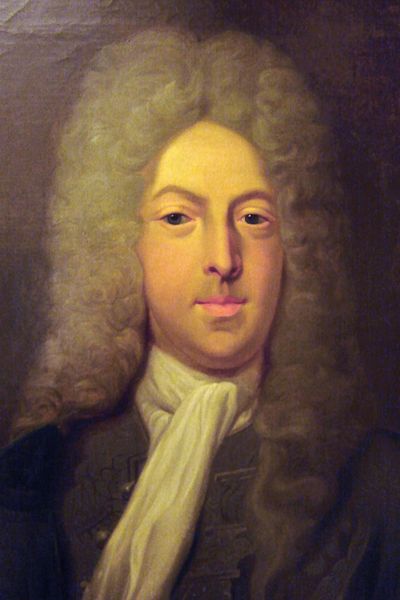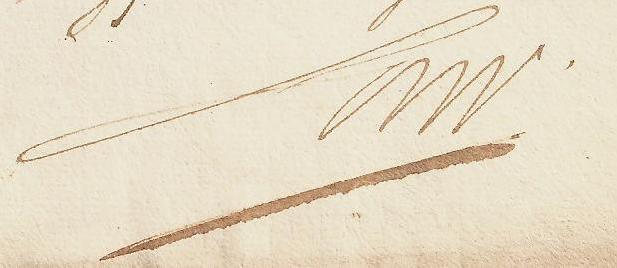- John Law (economist)
Infobox Writer
name = John Law

caption = John Law
birthdate = Birth date|1671|4|21
birthplace =Edinburgh Scotland
deathdate = Death date and age|1729|3|21|1671|4|21
deathplace =Venice Italy
occupation =Economist ,Banker ,Financier ,Author .

John Law (usually pronounced "Jean Lass" by contemporary French) ("bap."
21 April 1671 -21 March 1729 ) was a Scottisheconomist who believed thatmoney was only a means of exchange that did not constitutewealth in itself, and that national wealth depended ontrade . He is said to be the father of finance, responsible for the adoption or use of paper money or bills in the world today.Law was a gambler and a brilliant mental calculator, and was known to win card games by mentally calculating the odds. An expert in statistics, he was the originator of economic theories, including two major ideas: '
The Scarcity Theory of Value ' and the 'Real bills doctrine '.Biography
Law was born into a family of bankers and goldsmiths from
Fife ; his father had purchased a landed estate atCramond on theFirth of Forth and was known as Law of Lauriston. Law joined the family business aged fourteen and studied the banking business until his father died in 1688. Law subsequently neglected the firm in favour of more extravagant pursuits and travelled to London where he lost large sums of money in gambling.On
9 April 1694 John Law fought aduel with Edward Wilson. Wilson had challenged Law over the affections ofElizabeth Villiers . Wilson was killed and Law was tried and found guilty of murder and sentenced to death. His sentence was commuted to a fine, upon the ground that the offence only amounted to manslaughter. Wilson's brother appealed and had Law imprisoned but he managed to escape to the continent.Law urged the establishment of anational bank to create and increase instruments of credit, and the issue ofbanknotes backed by land,gold , orsilver . The first manifestation of Law's system came when he had returned to his homeland and contributed to the debates leading to theTreaty of Union 1707 with a text entitled "Money and Trade Consider'd with a Proposal for Supplying the Nation with Money " (1705). After the Union of the Scottish and English parliaments, Law's legal situation obliged him to go into exile again.He spent ten years moving between
France and the Netherlands, dealing in financial speculations, before the problems of the French economy presented the opportunity to put his system into practice.He had the idea of abolishing minor monopolies and private farming of taxes and creating a bank for national finance and a state company for commerce and ultimately exclude all private revenue. This would create a huge monopoly of finance and trade run by the state, and its profits would pay off the national debt. The French "
Conseil des Finances ", merchants, and financiers objected to this plan.The wars waged by
Louis XIV left the country completely wasted, both economically and financially. And the resultant shortage of precious metals led to a shortage of coins in circulation, which in turn limited the production of new coins. It was in this context that the regent, Philippe d'Orléans, appointed John Law, as Controller General of Finances.with a monopoly of commerce on all the seas. The system however encouraged speculation in shares in 'The Company of the Indies' (the shares becoming a sort of paper currency) and inflation. The system was based on Law trading shares in the Mississippi Company in return for government debt. The Banque Royale was created by default as a result of Law attaining the majority of the government issued notes (debt). It effectively became the Central bank of France. In 1720 the bank and company were united and Law was appointed Controller General of Finances to attract capital. Law's pioneering note-issuing bank was extremely successful until it collapsed and caused an economic crisis in France and across Europe. The collapse was staved off by a constant trading off between national debt and shares of the Misissippi company. New shares were issued to dilute the value of each share, and the new capital was used to purchase more government notes. The speculation continued to build, and the companies two brances, the trading arm, and the bank arm, collapsed simultaneously.
Law exaggerated the wealth of
Louisiana with an effective marketing scheme, which led to wild speculation on the shares of the company in 1719. In February 1720 it was valued for a very high futurecash flow at 10,000livre s. Shares rose from 500 livres in 1719 to as much as 15,000 livres in the first half of 1720, but by the summer of 1720, there was a sudden decline in confidence, leading to a 97 per cent decline inmarket capitalization by 1721. Predictably, the 'bubble' burst at the end of 1720, when opponents of the financier attempted "en masse" to convert their notes into specie. By the end of 1720 Orleans dismissed Law, who then fled from France.Law initially moved to Brussels in impoverished circumstances. He spent the next few years gambling in Rome, Copenhagen and
Venice but never regained his former prosperity. Law realised he would never return to France when Orleans died suddenly in 1723 and was granted permission to return toLondon having received a pardon in 1719. He lived in London for four years and then moved to Venice where he contractedpneumonia and died a poor man in 1729.Books
*"Millionaire: The Philanderer, Gambler, and Duelist Who Invented Modern Finance" by Janet Gleeson (2000). (ISBN 0-684-87295-1)
*" [http://www.econlib.org/library/Mackay/macEx1.html#Ch.1,%20Money%20Mania--The%20Mississippi%20Scheme Extraordinary Popular Delusions and the Madness of Crowds] " byCharles Mackay . First published 1841, and still available.
*"The Gamester" byRafael Sabatini .External links
* [http://www.mapforum.com/05/law.htm John Law]
* [http://onlinebooks.library.upenn.edu/webbin/gutbook/lookup?num=6949 Project Gutenberg Edition of Fiat Money Inflation in France: How ...]
Wikimedia Foundation. 2010.
